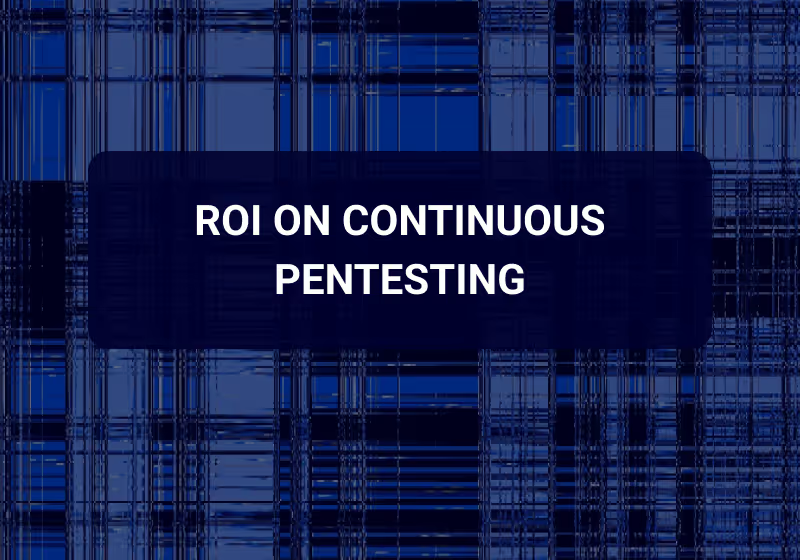PENTESTING REIMAGINED
Uncover your hidden exposures before adversaries do. Our penetration turns risk into resilience.
Our Penetration Testing portfolio delivers comprehensive, real-world attack simulations that identify, validate, and expedite remediation actions across your digital landscape.
Our Penetration Testing portfolio delivers comprehensive, real-world attack simulations that identify, validate, and expedite remediation actions across your digital landscape.




OFFENSIVE SECURITY SUITE
Combining a high-touch, high-tech approach across our portfolio of CTEM-oriented offerings:
AI Penetration Testing
Ongoing adversarial testing of models and prompt surfaces to detect data leakage, prompt injection, and model-poisoning risks — with repeatable tests and remediation validation.
Application Penetration Testing
Continuous, authenticated testing across the SDLC (static, dynamic, and interactive) to find and verify fixes for logic, auth, and business-logic flaws as code changes.
Cloud Penetration Testing
Persistent testing of cloud controls, IaC, identity, and data paths across multi-cloud environments to surface misconfigurations, privilege escalation, and drift from best practices.
Network Penetration Testing
Regular internal and external penetration cycles that combine automated scanning with expert validation to uncover lateral-movement paths, misconfigurations, and exploitable hosts.
Embedded Systems
Ongoing testing of embedded and IoT devices, firmware, and communication interfaces to uncover firmware vulnerabilities, insecure protocols, hardware attacks, and supply-chain risks.
Red Team
Ongoing, campaign-style adversary simulations that exercise detection, response, and business impact — proving security posture improvement over time.
Why Evolve Security?
01
CTEM Maturity Model
Evaluate CTEM maturity and strengthen resilience by assessing readiness against evolving adversary techniques and attack vectors.
02
CPT Market Leader
Offensive SOC and engineering experts drive measurable outcomes, guiding every phase from exposure discovery to remediation.
03
Award Winning Platform
Darwin Attack platform validates security controls and precisely pinpoints prioritized vulnerabilities across dynamic environments.
04
OffSec Operations Center (OSOC)
Agile bullpen of offensive testers rapidly adapts tactics, mirroring adversaries as threats and business priorities shift.
05
Trusted Methodologies
Industry-trusted methodologies including OWASP, OSSTMM, PTES, and NIST ensure disciplined, comprehensive penetration testing rigor.
06
Customized Simulations
Tailored simulations reflect an industry’s distinct threats, adversary behaviors, and mission-critical attack scenarios.
WHAT TO EXPECT?

Onboarding Platform
1

Align Objectives & Outcomes
2

Ongoing Testing / PIT Testing
3

Quarterly Service Review
4

Ongoing Testing Dashboard
5
ELITE ADVERSARIAL OPERATORS
Combining a high-touch, high-tech approach across our portfolio of CTEM-oriented offerings:
CTEM Maturity Model
- Offensive Security Certified Professional (OSCP)
- Offensive Security Wireless Professional (OSWP)
- Practical Network Penetration Tester (PNPT)
- Certified Professional Penetration Tester (eCPPT)
- CompTIA Security+, Network+, Pentest+
Specialized & Advanced:
- AI Red Teaming Professional (AIRTP+)
- GIAC Web Application Penetration Tester (GWAPT)
- Red Team Operator (RTO)
- Red Team Alliance Covert Entry Associate (CEA)
- Red Team Field Manual Challenge (RTFM)
Foundational & Industry-Wide:
- Certified Information Systems Security Professional (CISSP)
- Certified Ethical Hacker (CEH)
Cloud Expertise:
- AWS Certified Cloud Practitioner
- AWS Certified Solutions Architect
- GIAC Cloud Penetration Tester (GCPN)
Creating Raving Fans
At Evolve Security, our mission is to provided an unmatched customer experience from "the jump", our first interaction, and build a high-trust partnership with our customers along the journey

SVH Cyber, a cybersecurity and AI advisory firm, brings unique industry insight and partners with Evolve Security to advance offensive security. In this Executive Spotlight, Scott explains why Continuous Penetration Testing is essential amid AI-driven threats, highlighting measurable risk reduction, resilience, and stronger business-aligned security outcomes.
Scott Howitt, CEO, SVH Cyber

APT, now Veryon, the industry leader in aviation software and information services, turned to us to address their cybersecurity concerns after multiple acquisitions.
Through our partnership, ATP's COO is demonstrating major ROI on their cybersecurity investments including improvements in offensive security program, penetration testing, and internal staff augmentation.
Mike Shults, ATP COO
Game Changing Resources
Dive into our game changing resource library that delivers novel thought leadership and real-time perspectives that reimagine how organizations design, manage and elevate offensive security programs

ROI on Continuous Penetration Testing (CPT)
ROI on Continuous Penetration Testing (CPT): Annual Penetration Testing Is Failing Modern Security Programs

The CTEM Chronicles: A Fictional Case Study of Real-World Adoption
Explore a fictional case study of Lunera Capital, a mid-sized financial firm that adopted Continuous Threat Exposure Management (CTEM). See how theory meets practice and how this company goes from chaos to clarity in cybersecurity.

Webinar: A Case for CTEM
A Case for CTEM | September 2025 | Paul Petefish, Jason Rowland, & Victor Marchetto

Fireside Chat: State of Cybersecurity 2025
State of Cybersecurity 2025 | December 2024 | Nils Puhlman & Mark Carney

Zafran & Evolve Security - Executive Roundtable

Black Hat & Def Con
Las Vegas










